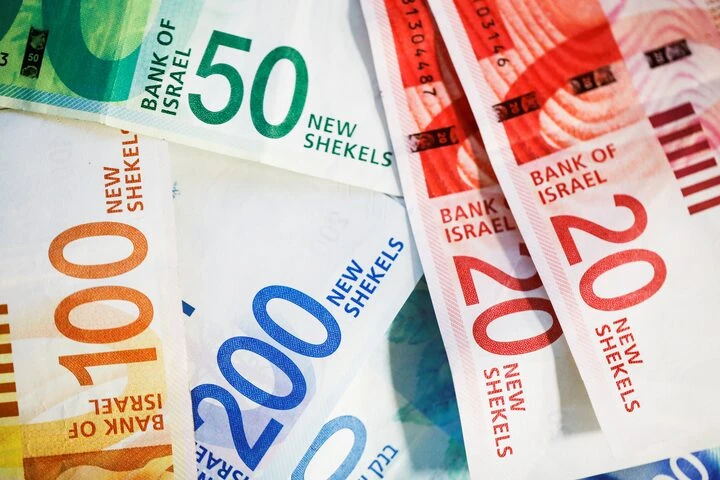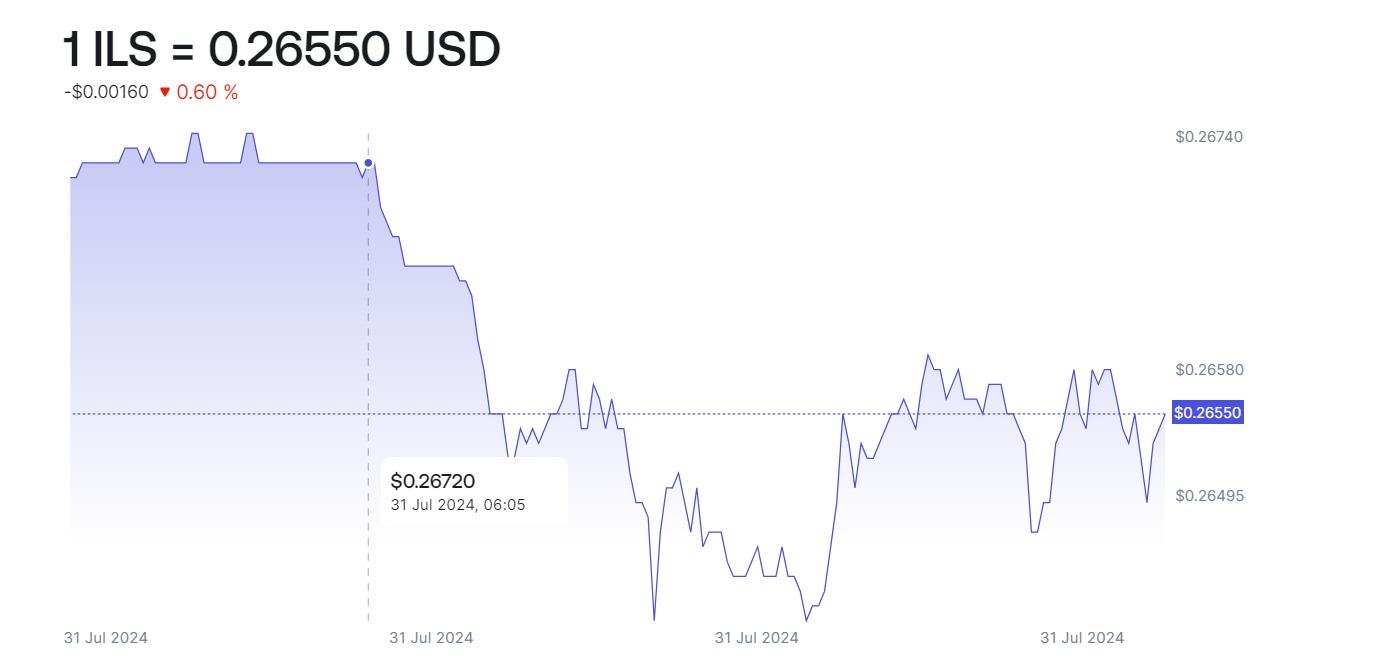Israeli shekel plummets following Hamas chief’s assassination
 New Israeli Shekel banknotes seen in this picture illustration taken November 9, 2021. (Reuters Photo)
New Israeli Shekel banknotes seen in this picture illustration taken November 9, 2021. (Reuters Photo)
The Israeli shekel has experienced a sharp decline following the assassination of Hamas chief Ismail Haniyeh in Tehran early on July 31.
According to Bloomberg, the shekel fell by 1.2%, with traders expressing concerns that the killing of Haniyeh on Iranian soil heightened the risk of a broader Middle East conflict.
Over the past three days, the shekel’s cumulative decline has reached 3.3%, marking the worst performance globally, second only to the recently floated Ethiopian birr, according to Bloomberg.
Israel’s 10-year sovereign yield increased by six basis points to 4.99%. It is noted that “the latest events have eroded traders’ optimism in a quick resolution,” suggesting that the shekel is likely to face its worst week in two years.

Shekel hits lowest since April
For the time being, the shekel is trading at its lowest level since April, according to reports. Additionally, the volatility of the shekel is surging, with one-month implied swings, based on options prices, increasing for five consecutive days, the longest streak since November.
Impact of ongoing conflict
The ongoing war in Gaza and attacks by the “Axis of Resistance” on Israel have already severely impacted the Israeli economy.
Iranian leadership refers to the “Axis of Resistance” as a coalition of state, semi-state and non-state actors.
Hebrew media reported earlier this month that 46,000 Israeli businesses have been forced to shut down due to the conflict in Gaza and operations by Hezbollah, the Yemeni army, and other Axis members.



